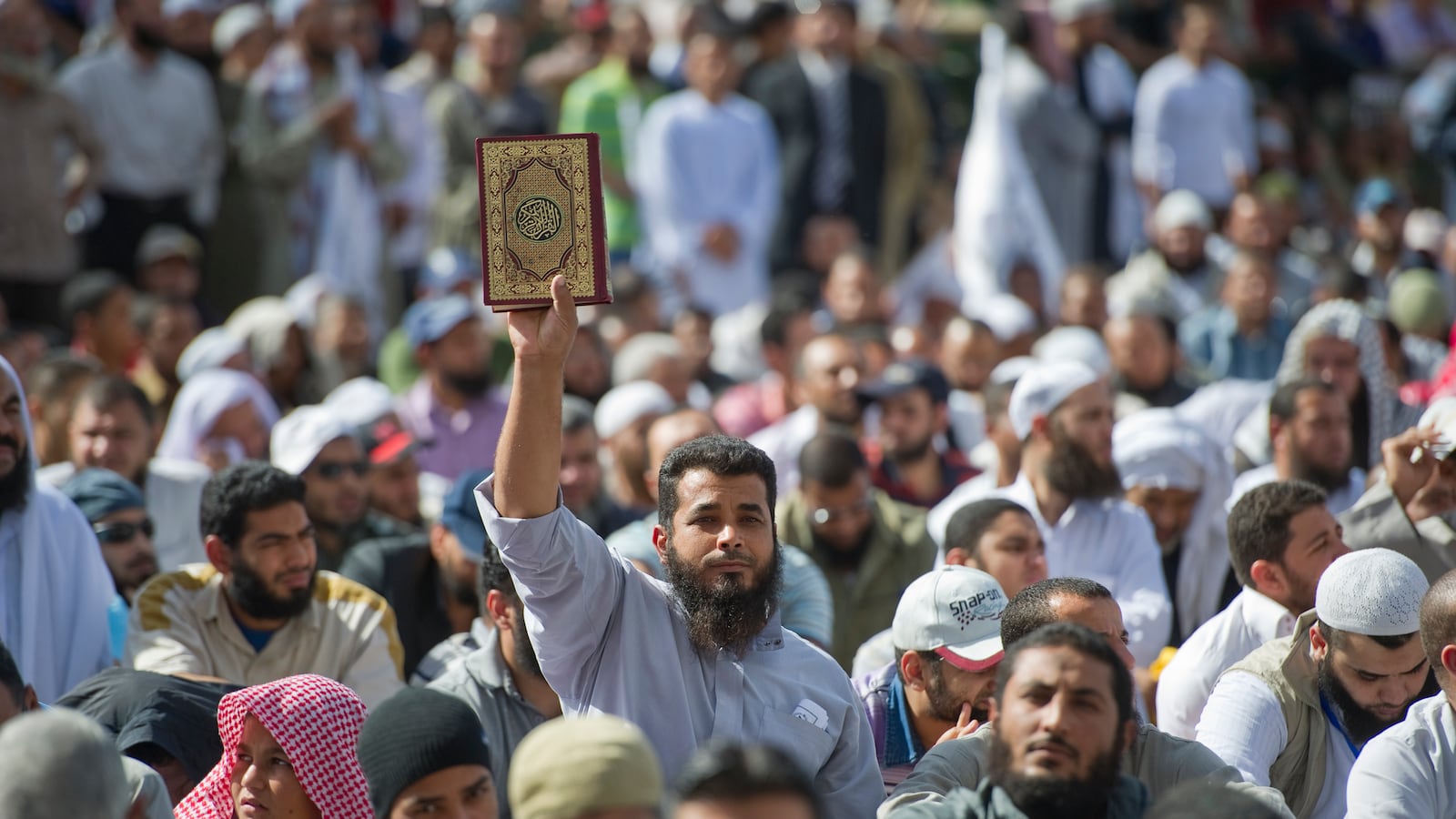On April 19, 30-year-old Mohamed Ragab spent the day at a friend’s wedding and then took a bus home. When he disembarked in his small village of Matay, in Upper Egypt’s conservative countryside, he was stopped by officers from the local police.

“Are you drunk?” Ragab remembers one officer asking, and after he admitted to having a few drinks at the wedding, the policemen hauled him off to jail.
Drinking is no crime in Muslim-majority Egypt, though public intoxication is, as in the United States. Ragab, a part-time dues collector for the local musicians’ syndicate, was later charged with being drunk and possessing hash.
Ragab was jarred by the experience of spending the night in jail. But the real surprise came when he was brought before the village prosecutor the next day—and received a sentence based not on Egypt’s legal code, but on the Quran. Citing Sharia, which is laid out in Islam’s founding texts, the prosecutor ordered Ragab to be lashed 80 times and then set free.
Egypt’s new Islamist political powers, who won nearly 70 percent of seats in last year’s parliamentary elections before former Muslim Brotherhood official Mohamed Morsi was elected president in June, campaigned aggressively on the idea of instituting Sharia in Egypt. And its principles were deemed the primary source of all legislation in the controversial new Constitution that Morsi and his allies pushed hard to see ratified late last year.
But in Ragab’s case, the government acted swiftly to stop Sharia from being applied. On Monday, Egypt’s general prosecutor announced in a statement that he had canceled the lashing order, suspended the village prosecutor, and launched an investigation.
While it’s unclear whether Morsi’s office was involved in the general prosecutor’s decision, analysts say that Ragab’s case helps to illustrate Morsi’s difficult balancing act on religion: while he and his allies may push Sharia in their politics, they are wary of seeing it put into practice now. “The actual implementation of Islamic law is not on the [government’s] agenda right now,” says Shadi Hamid, the director of research at the Brookings Doha Center. “They’re careful not to overreach.”
Hamid says Morsi and the Brotherhood have been clear on their long-term objectives when it comes to Sharia—they want to see it implemented down the line. But with Morsi’s tenure already marred by extreme polarization, and Egypt gripped by continual crisis, the government appears unwilling to push the issue now. “They have enough problems as it is, so they don’t want to provoke domestic and international controversy by applying aspects of Islamic law,” Hamid says.
Any serious government push on Sharia law, Hamid adds, would likely be drawn out and carefully managed. “Islamization isn’t something you do on the fly,” he says.
But some government critics say the new emphasis on Sharia—both in politics and in the Constitution—is inspiring some Egyptians to take enforcement into their own hands. Bahey el-Din Hassan, the director of the Cairo Institute for Human Rights Studies, warns of “a rising phenomenon of Egyptian people taking on the law themselves.” The country’s growing security void has seen this happen on issues of law and order, Hassan says, and examples of vigilante justice abound. But some people also feel empowered on religious grounds, he adds, leading to incidents in which citizens are “taking guardianship” of Sharia.
The new Constitution, Hassan says, “directly encourages people to implement Sharia themselves.”
Ragab’s case is an anomaly: it is the only well-known example of a Sharia-based punishment doled out in court, and sentencing is normally handled by a judge, suggesting that the prosecutor in question operated well outside the system. But Ragab’s lawyer, Ahmed Shabib, blames the case on Egypt’s political climate nonetheless. The prosecutor, he says, “felt that we now live in a religious country, and every single person should obey Islamic rules.”
Ragab, meanwhile, says he’s still reeling from the ordeal. “I’m very worried, and confused,” he says.
With reporting by Maged Atef in Cairo.






